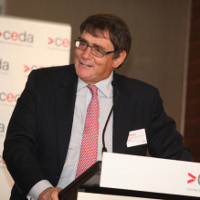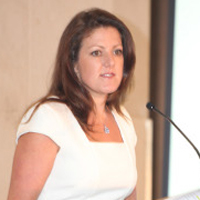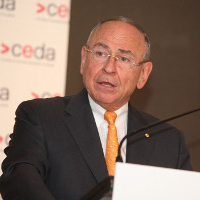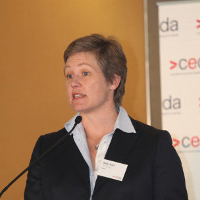Explore our Climate and Energy Hub
21/03/2013
Australia should prioritise investment in infrastructure projects that increase productivity and international competitiveness, a CEDA forum in Sydney has heard.
Westpac, Managing Director, Economics, Bill Evans said: "The way you get growth is to increase the labour force participation or to raise your productivity and there's a link between infrastructure and productivity if the right infrastructure projects are chosen."
While the panel of experts at CEDA's Leveraging Australia's fiscal strength forum agreed that investment must be made in the right kind of projects to bring about growth and increase productivity, they outlined a range of political and financial issues in realising this.
The Association of Superannuation Fund of Australia, CEO, Pauline Vamos said Australia has a problem with the certainty of project pipelines as well as some of the highest infrastructure project costs.
Infrastructure projects in Australia, which will have a short peak period when complete, are competing for finance with international projects that have much higher usage and longer peak usage times, she said.
Ms Vamos also said there are limitations on infrastructure investment from super funds which needs to be addressed - like liquidity requirements.
However, the investment appetite is starting to change and many funds are now looking at opportunities within local councils in terms of greenfield assets, she said.
The forum also heard that one of the problems in Australia at the moment is that the responsibility for financing infrastructure sits with the state governments who are currently in a weak fiscal position.
"At the moment we are relying upon infrastructure investment, putting that responsibility onto very weak government balance sheets - being the states - when we have a very strong federal government balance sheet that could absorb a lot more government debt and could really kick the infrastructure process off," Mr Evans said.
"We should be taking advantage of the relative borrow strength and the substantial strength of the balance sheet of the Commonwealth (government) to make direct investments in infrastructure.
"There's a huge task for the federal and the state governments to get closer together and agree that they're all the one nation, they've all got the one objective in mind."
Ms Vamos agreed saying that the first hurdle was getting the commonwealth and states to work together so there could be more certainty and clarity over which assets to build, which to sell, and who would cover the risk.
"Why I think some countries and some states get into trouble when it comes to infrastructure spend (is that) there is a concern that it's for shorter term political needs rather than long term economic needs," she said.
Mr Evans added that the perception that debt is a bad thing needs to be rectified.
"What I would argue is that $50 billion would be around about three per cent of GDP and I wouldn't be uncomfortable if Australia's net to GDP was derived to that degree if the money was being used to invest in infrastructure projects that have been appropriately analysed on a sensible cost-benefit analysis on an arm's length basis," he said.
There are political risks of choosing the wrong projects, but we should be ramping up Infrastructure Australia and giving them more money, he said.
Consult Australia, Chief Executive Officer, Megan Motto said there has been momentum in this space which we need to build on.
With 80 per cent of our population living in cities and producing 80 per cent or more of our productivity, we should be re-casting almost all policies (federal, state and local) through a cities lens, she said.
"You can't look at, for example, education…health policy independent of what goes on in cities these days and the infrastructure that connects all of those things."
We need to shift to a coordinated policy in Australia, because at present the portfolios operate in silos and compete with each other for funding, she said.
"We (Consult Australia) would argue that the next logical step for governments is to in fact have a Department of Cities and Urban Environment and that is the lens through which all policy decisions are made, so we end up with much better, joined up policy in Australia," she said.
On infrastructure priorities Ms Motto said: "My response is most often a high speed rail system along the east coast, because as a nation we really haven't had a piece of infrastructure of that size and capability since the Snowy Mountain Hydro Scheme."
We really need to start having a coherent, bipartisan national dialogue about infrastructure and start using debt as a tool to fund infrastructure rather than, as it often the case, a political weapon, she said.
Queensland Investment Corporation, Director, Dr Maurice Newman said as long as the money is coming from taxpayers, infrastructure financing won't be divorced from political reality.
There is always a risk that it might be seen as (having) political benefit rather than long term economic benefit, he said.
"Whatever the infrastructure proposal is, it needs to have a strong business case and it has to be contestable, that is the private sector must be able to compete with whatever that project happens to be," he said.
He pointed to the NBN as an example of how governments should not be conducting the infrastructure building process.
"We've going to have to take a much harder nosed view about government spending, and debt and deficits aren't always bad things but sometimes they are," he said.
"We're spent - some people say squandered - $70 billion in stimulus to prevent us from sliding into recession during the Global Financial Crisis - that is largely recurrent spending. The money that was spent is no longer there for investment, it's gone.
"Yes, Australia's financial strength compared to most other countries is very good, but not as good as it was.
"The same sorts of choices that may have been easier when the financial conditions were better will require a much harder line to be taken than would otherwise have been the case because there's only a finite amount of money."
Mr Evans said the nature of the dynamics in the current economy is not conducive to strong growth and as such it's not necessary to have any major fiscal tightening.
"I expect with time we'll start to see more inflation coming into the economy, nominal GDP will get more of a boost and the revenue side of things won't be as challenging as it is today."
"I believe the state of this economy is much more fragile than is the current view.
"I believe that appropriately targeted fiscal stimulus that is always focused on the productivity or the labour participation, which is how we get growth, would be appropriate."
On raising capital to fund infrastructure projects JP Morgan, Interest Rate Strategist, Sally Auld said: "For many investors it's a no brainer - you invest in Australian government bonds, they're AAA (rated) and get a significant yield pick-up."
When asked if Australia should be taking advantage of this period of very low bond yields to issue long terms bonds Ms Auld said the Australian Office of Financial Management had already done that but the longest bond was only 15 years.
"The push back has always been 'we're just not sure that the demand will be there' but…certainly from a long run perspective it makes sense to lock in low yields," she said.
On China's investment in Australia Ms Auld said Chinese central banks already buy Australian and state government bonds as well as provide direct investment.
"The Chinese are already a significant financer of debt and participant in our financial markets and that's probably not going to change anytime soon and if anything they'll become more significant," she said.
On whether Australian banks should reduce their dependence upon international financial markets Ms Auld said: "There are a few more central banks out there yet to invest but the bulk of that has happened and those flows are reasonably mature."
"So I guess that tells you that in terms of financing the current account deficit, the emphasis will shift elsewhere."





